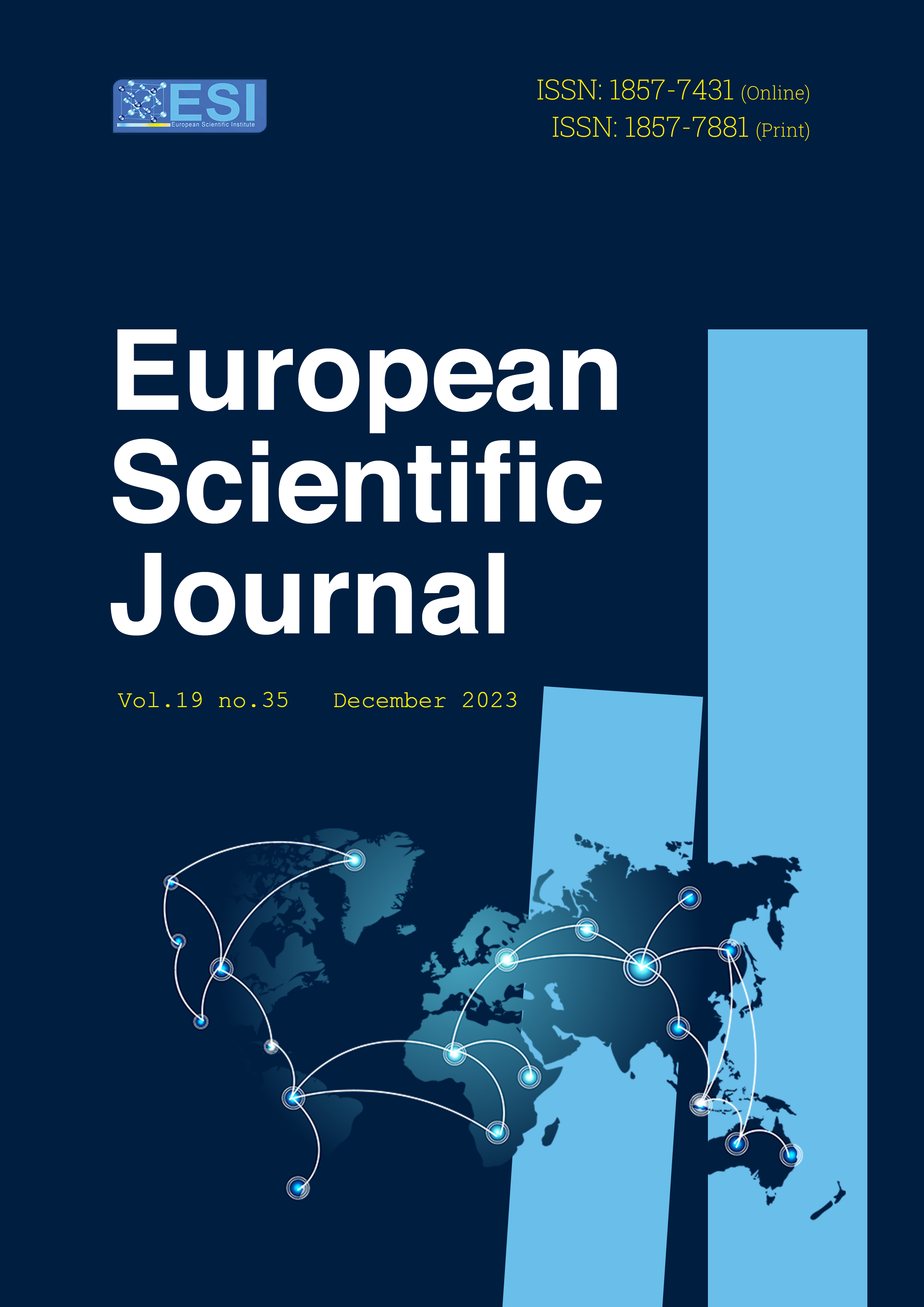Labour and Employment Policy: Opportunities and Challenges for Undergraduate Students
Abstract
The purpose of the study is to identify specific needs that will contribute to the employment opportunities of undergraduate students in the workplace with appropriate conditions. The presented article discusses the mechanisms of employment and promotion of undergraduate students, which, on the one hand, will improve the socio-economic status of students, and on the other hand, will help them combine work and study. Based on the review of the international literature and as a result of the conducted quantitative research, the circumstances and features promoting the employment of students were studied, the challenges faced by undergraduate students in Georgia during employment were analyzed and identified. As a result of the obtained data, such hindering circumstances of employment were determined, such as unsuitable work schedule, lack of student work in the labour market, low interest of employers in employing students, wages and working hours. Based on the sources, approaches, practices and mechanisms in the world focused on the promotion of student employment, which in itself improves the socio-economic status of students and increases their motivation to study, have been identified. The article presents the advantages and disadvantages of mechanisms promoting the employment of undergraduate students and generalizes them in relation to the existing international practice. The focus is on the lack of student jobs in the labour market, access problems and their causes. The subject of the research is the state policy of promoting the employment of undergraduate students, and the object of the research is current undergraduate students of private and state educational institutions of the Autonomous Republic of Ajara. The main task of the work is to study the attitudes of students, educational institutions and employers towards the employment of students in jobs with appropriate working conditions, to identify gaps and develop recommendations. Research methods such as analysis and synthesis, systematic, inductive-deductive, statistical and comparative-legal were used in the research process. As a result of the research, it was determined that the system cannot respond to the challenges related to student employment.
Downloads
PlumX Statistics
References
2. Agentur Junges Herz. Werkstudentenvertrag – Lohn, Arbeitsrecht und Versicherung, doi: https://www.agentur-jungesherz.de/hr-glossar/werkstudentenvertrag-lohn-arbeitsrecht-und-versicherung/#:~:text=W%C3%A4hrend%20des%20Vorlesungszeitraumes%20d%C3%BCrfen%20Werkstudenten,welcher%20der%20Student%20t%C3%A4tig%20wird , https://www.agentur-jungesherz.de 28.09.2023
3. Allwörden, J. Daad (Deutscher Akademischer Austauschdienst). Der Nebenjob. doi: https://www.daad.de/de/studieren-und-forschen-in-deutschland/erste-schritte-deutschland/nebenjobs/ , www.daad.de 12.09.2023
4. Bregvadze, T. (2013) Strategic development of higher education and science in Georgia, Analysis of higher education policy according to five strategic directions. Tbilisi: International Institute for Education Policy, Planning and Management, pp. 3
5. Georgia, The Parlament of Georgia. (2020) Law of Georgia on Employment Promotion (270170000.05.001.019966, 17.05.2023) Tbilisi: Legislative Gazette.
6. Georgia, Minister of Foreign Affairs of Georgia. (2000) International agreement of Georgia. International on Economic, Social and Cultural Rights Pact, (430003000.00.000.000338) Tbilisi: Legislative Gazette.
7. Georgia. National Statistical Office of the state of Georgia. (2022) Account. Unemployment rate by age in 2022.
8. Hauschildt, K. et al. (2019) THE SOCIAL DIMENSION OF STUDENT LIFE IN THE EUROPEAN HIGHER EDUCATION AREA IN 2019. Eurostudent VII.
9. Healy, A. et al. (2012) Measuring the Impact of University Business Cooperation. European Commission. pp. 5.
10. Human Rights Research Institute. Grigol Robakidze University. (2017) Analysis of state employment policy in Georgia and European countries. pp. 2 www.gruni.edu.ge 12.09.2023
11. Javaxishvili, N. (2011) Promotion of employment of students by higher educational institutions of Georgia. Tbilisi: Tbilisi State University. pp. 11 http://erasmusplus.org.ge/ 29.09.2023
12. Kikutadze, V. et al. (2022) A study of cooperation between higher educational institutions and employers in Georgia, pp. 4-30.
13. Millard, L. and Hargreaves, J. (2015) Creatively employing funding to support innovation.
Innovations in Education and Teaching International. Issue 3. (Volume 52, 2015) pp. 335-344 www.tandfonline.com 12.09.2023
14. Ministry of Education and Science of Georgia. Ipm studies. Eurostudent National Project VI Tbilisi. pp. 16 www.mes.gov.ge 29.09.2023
15. Ministry of Education and Science of Georgia. Unified strategy of education and science 2017-2021. pp. 3. www.mes.gov.ge
16. Papashvili, A. and Bejanidze, T. (2022) Higher education and social justice - Study of students' social needs. Friedrich Ebert Stiftung. pp. 2-20. doi: https://library.fes.de/pdf-files/bueros/georgien/19631.pdf
17. Rakovska, N., Pavlin, S. and Melink, M. (2014) Assessment of cooperation between higher education institutions and employers in Europe. European Commission Results of the 2019-2021 Eurostudent survey, pp. 4. https://www.mes.gov.ge 28.09.2023
18. Shudra, T. (2014) Part-time work. Labour Law. Tbilisi: „meridiani“, pp. 113
19. Socio-Economic conditions of Georgian higher aducational institutions students related to other European countries. Eurostudent Results 2019-2021, pp. 33
Copyright (c) 2023 Mariam Davitadze

This work is licensed under a Creative Commons Attribution 4.0 International License.








